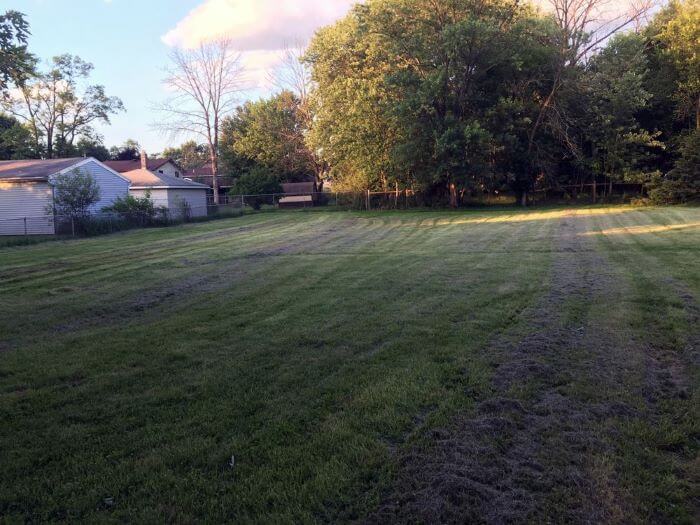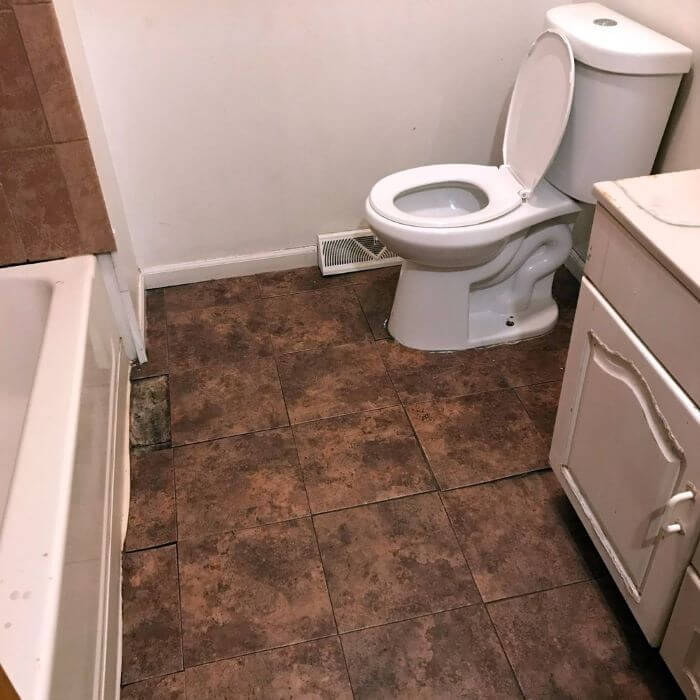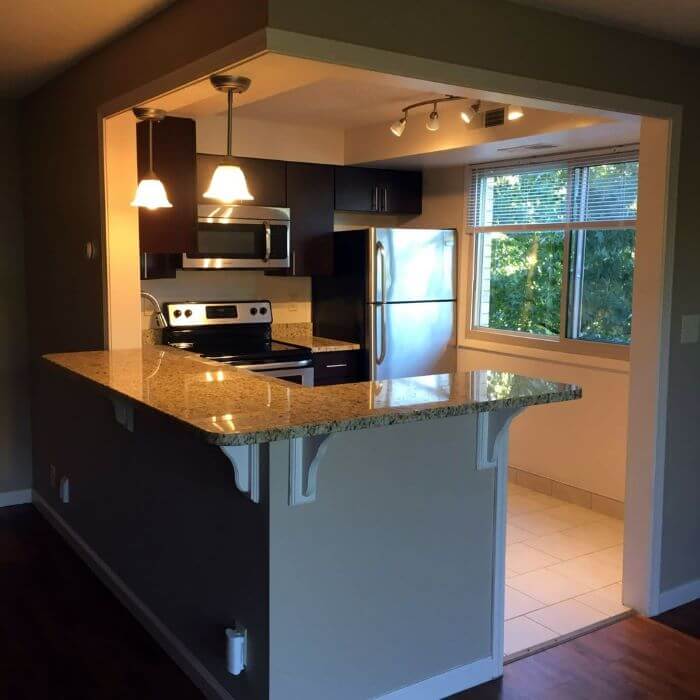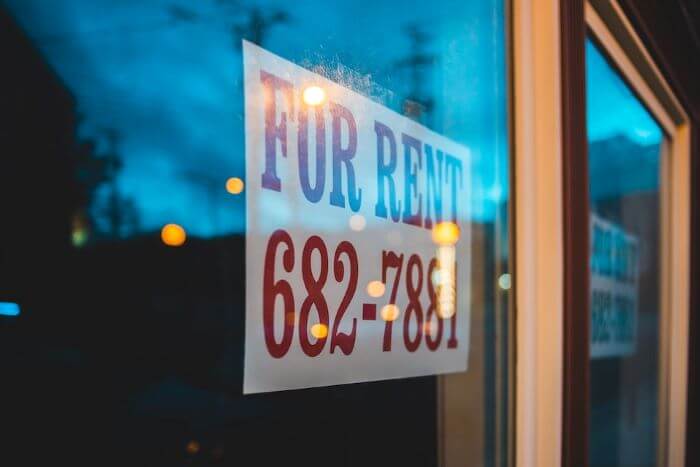Finding good, qualified tenants is one of the more difficult aspects of self-managing a rental property.
There are a lot of different paths you can take in an attempt to identify reliable tenants. If you find a qualified tenant, great. But, if you end up with the wrong tenant – the consequences can be costly.
In this post, I want to share my thoughts, as a landlord and previous renter, on how to find qualified tenants.
Table of Contents
1. Want good tenants? Have a good rental property
This is the most important section of this entire post. The better your rental property is compared to what’s on the market – the more likely you are to receive an application from a good tenant.
See, a good tenant has options. They likely pass the income-to-rent ratio, have financial responsibility, good credit history, and will pay rent on time wherever they end up.
These tenants are looking for the best property they can find within their budget and time frame. If your rental property is an overall 7/10 and there are rentals available that are better – things may be slow for you until those properties get rented (or if the property manager at the other properties is hard to deal with).
Depending on your area, the features and desires needed to attract tenants can be vastly different. Learning about your local rental market will help you identify what people care about.
For example, a pool might be desirable for a rental in Phoenix, Arizona but, in Buffalo, New York – a pool might be more of a hassle for great tenants due to the winter months.
So, try making your rental property as good as you can make it without wasting money. For my area, this usually means:
Have a big and/or nice yard

The first thing people look at when viewing your rental property in person is the yard and area around your property. Although you can’t control the area around your property – you can make your area as nice as possible.
Most humans want the nicest “thing” we can get. So, you’ll definitely have the attention of prospective tenants if your property looks like one of the best.
Make sure the interior is clean

There were many times before I became a landlord that I would go look at a rental property as a responsible tenant and wonder why they would show anybody a property in “this” condition.
“This” condition was usually dirty with fingerprint smudges on the wall, random bits of the previous tenant’s trash throughout the house, mold growth and discoloration in different spots of the bathroom, and more.
After looking at a few rooms and seeing their level of “clean”, I’d immediately end the showing and leave.
I do not miss the days of leaving work early to go look at a rental property that was basically a waste of time. This happened frequently enough that I started avoiding any property that seemed like it was managed by the same company or had similar language in the property listing.
Avoid a dark-lit home (or at least stage it properly)
It was common that if a home was dark-lit, it was also dirty as I mentioned above. Not all of the time, but it was always a gamble for me in my area. It even got to a point where I’d avoid rental listings where the photos looked too dark/bad.
I mean, I’m sure there were some “diamonds in the rough” that I skipped over but it might have been worth not wasting my time.
Most of the time I went to look at a vacant rental property as a potential tenant, if it was dark, I left the showing disappointed. The home would feel smaller and I’d find myself using the flashlight on my iPhone to see some areas more clearly.
If your property is dark due to bad positioning to the sun, lots of trees, not enough windows, or whatever – make sure you stage the property with lamps before you start showing it.
It makes a big difference to prospective tenants like me.
Install high-quality looking fixtures and materials

When talking to potential tenants about what they liked about a property, they mention something like the countertops, fireplace, sink, or flooring.
When I was a tenant looking for rentals, the things that caught my attention were unique features or things that looked way nicer than I expected.
For example, my area had a lot of rental properties with laminate countertops in my budget. One day, I went to look at a property that had modern granite countertops and a nice light in the kitchen that made the countertop look amazing.
Those countertops could have been from a remnant or something the countertop company sold at a discount. The actual price didn’t matter to me as a tenant – all I cared about was that it looked high-quality.
That one feature made me accept some of the flaws the property had. And although we didn’t rent that exact property, we did end up renting another property from that property manager.
Give the property a unique feature
While this isn’t necessary, I highly recommend giving your rental property a unique feature.
Me and my wife are always looking for new properties to purchase that make sense for our goals. Anytime she sees a place pop up on Redfin, she sends me a message and says “did you see the house with the *insert unique feature here*”.
Not only does having a unique feature make your property more attractive to tenants, but it also helps with word-of-mouth marketing. Even if your property isn’t a good fit for a tenant, they may reconsider their “wants” or send the property website/listing to their friends for an opinion.
Here’s a list of unique features that are relatively inexpensive for what you get:
- Outdoor landscape lighting
- Built-in electric fireplace
- Large, deep sinks
- Under-cabinet lighting
- Outlets near the toilet for a bidet
- Customizable locker for Amazon package deliveries
2. Try Marketing
In my local rental market, the demand is so high that you can find renters with little effort. However, if your area doesn’t have as much demand from interested renters, here’s what I’d recommend:
- Use your waitlist (if you have one)
- Word of mouth or referrals
- Use Craigslist or social media (there are probably Facebook groups for your city)
- Utilize rental sites (this should open your pool of prospective tenants drastically)
It’s not rocket science but, it does require additional time and work if you want to find renters that could make great tenants.
I also find that in my area, prospective renters are most interested in renting from private landlords (after having bad experiences with property managers). So, when posting a rental property online, mentioning “private landlord” will lead to more prospective tenants applying for the rental unit (in my area).
3. Have a thorough application process
Most people who own rental property, that I’ve talked to, have an application process.
However, there’s a big difference in how thorough those applications are between “old-school” landlords and landlords on the internet.
Most landlords I know in person are older and not interested in spending a lot of time on the internet. For better or worse, they do what they do because it’s working for their goals and the amount of work they’d like to put in.
This means that access to information, processes, and perspective from other landlords are limited to those around them. If those around you are winners, you’ll likely become a winner. But, if those around you are losers, you’ll likely become…..
So, with that said, let me sum up an “old-school” landlord’s process and what a thorough landlord’s application process should look like. This should help you see how a thorough application can help make unqualified tenants easier to spot.
Old-School landlord application details
Here’s what a typical “old-school” landlord’s application might look like in my area:
- Name
- Birthday
- Current address
- Monthly income
- Job details
- Do you have a criminal history?
- How many people live with you?
Modern landlord application details
Here’s what a modern landlord or property management company application might look like to potential renters in my area:
- Name
- Birthday
- Email address
- Driver’s license number (to help run a background check/credit check)
- Social security number (to help run a background/check credit history)
- Current address and landlord information (to ask the previous landlord about their experience with you as a tenant)
- Previous address and landlord information (to ask the previous landlord about their experience with you as a tenant)
- Estimated move-in date
- Job details
- Monthly income
- Vehicle information (make, model, color, license plate number)
- How many people live with you? (and all of their personal information as well)
- Do you have pets?
- Do you have a criminal history?
- Have you filed for bankruptcy before?
- Prior evictions?
4. Have some kind of tenant screening
For anyone that’s been around a lot of landlords that self-manage, you probably already know that many landlords don’t have any kind of tenant screening process. This is changing (for the better) over time as property management companies take over more rental properties and set the “standard”.
The “old-school” landlords are starting to figure out that tenant screenings need to happen if you want good tenants.
Just because a prospective tenant makes enough money to afford your monthly rent and security deposit – doesn’t mean they’re the perfect tenant. Especially if this potential tenant says they can pay several months’ rent upfront.
My recommendation for us landlords that are the property manager as well is to use a dedicated tenant screening service such as SmartMove.
No, it won’t tell you if a tenant is the “best”. However, it will help you with your tenant selection process by giving you information about that tenant:
- rental history
- criminal history
- employment
- credit
- and more
5. Ask other rental property owners
If you’re friends with other rental property owners, you can ask them if they had any recent “qualified” tenant applications that they had to put on a waiting list after filling up their units.
If so, ask them if they could recommend your rental listing to that renter if it fits what they were looking for (don’t ask for that renter’s information).
Obviously, not everyone is going to feel comfortable recommending your property. But it doesn’t hurt to ask if you also have landlord friends.
Frequently Asked Questions
How do I find the perfect renter?
In order to find the perfect renter, you have to set your guidelines for what a renter needs to meet in order to be perfect (make sure to abide by the fair housing act and all local laws).
How do real estate agents find tenants?
I won’t speak for all real estate agents but my friends are usually able to find renters through word of mouth or by listing the rental to the MLS – which then can get syndicated to other rental listing sites such as Zillow, Redfin, Apartments.com, etc…
How do I choose between two tenants?
Consult with a local real estate attorney to verify that you understand all laws associated with selecting a tenant and discrimination. This isn’t legal advice and I’m not telling you what to do, but I believe that if both tenants have met your guidelines – it should operate on a first-come first-serve basis.
How can I impress a tenant?
Hopefully, you’re looking to learn how to make your property impress a tenant. Don’t be the landlord trying to date your tenant, harassing them, or worse.
However, making your property more impressive to a tenant requires you to learn about what tenants in your local market are impressed by. Once you learn this, you should be able to implement what you’ve learned and have an impressive property.
